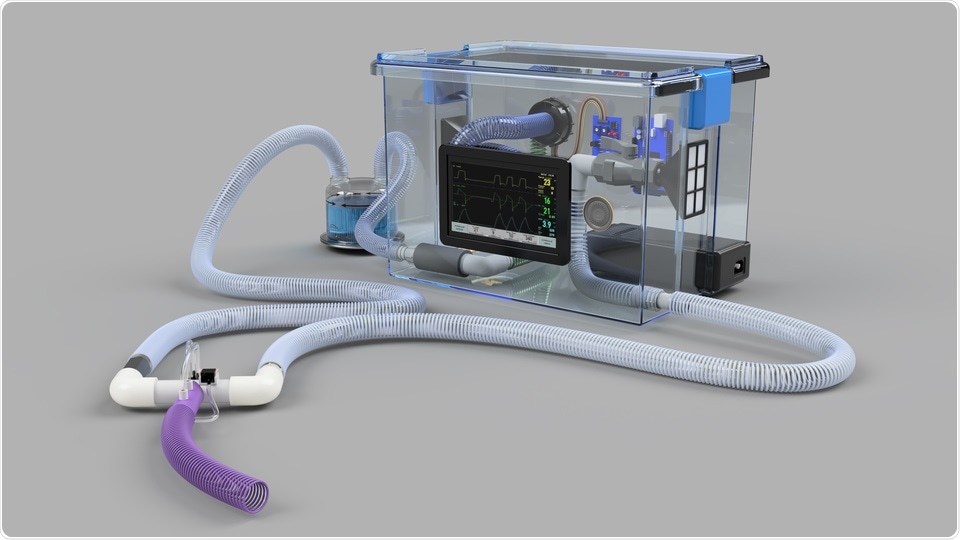More than 200 teams from around the world have submitted designs for a rapidly deployable, minimum viable ventilator as part of a hackathon hosted on GrabCAD.com, with round one ending May 1. The CoVent-19 Challenge has now shifted to a finalist round. Seven teams have been selected to participate and will be building working prototypes for testing by a team of judges led by a dozen anesthesiology resident physicians from Massachusetts General Hospital.

The RespiraWorks ventilator was designed by a global team and can be assembled locally.
Healthcare systems around the world continue to face a period of great uncertainty caused by the COVID-19 pandemic. Will they be able to provide invasive mechanical ventilation to all who need it? As anesthesiologists, we are experts at using ventilators to care for critical ill patients and believe there is an opportunity for innovative new designs particularly for areas where standard mechanical ventilators may be hard to obtain.”
Dr. Richard Boyer, Founder and director of the CoVent-19 Challenge
Phase 1 submissions included teams from 43 different countries, including Algeria, Bangladesh, Canada, Egypt, Greece, India, Malaysia, the Netherlands, Poland, Singapore, Spain, the United Kingdom, and the United States. The finalist teams are:
- SmithVent, a team of Smith College (Northampton, Mass.) engineering alumni and friends.
- CoreVent, submitted by Ross Hunter of Armadilla Ltd. (Edinburgh, Scotland)
- InVent Pneumatic Ventilator, submitted by fuseproject, a design and innovation firm (San Francisco), Cionic, a medical device technology company (San Francisco), and a mechanical engineering team from Accenture (Seattle).
- RespiraWorks, a global team of dozens of engineers, healthcare workers and other professionals with a focus on developing countries and low-resource communities.
- OP Vent, submitted by a team from Nvidia (Santa Clara, Calif.), Waymo (Mountain View, Calif.), Stanford University (Palo Alto, Calif.), and VA Palo Alto Health Care System.
- Lung Evolve, submitted by an engineering team from the Universidad Nacional (Bogotá, Colombia) and Universidad Pontificia Bolivariana (Medellín, Colombia).
- Baxter Ventilator, submitted by a team of educators, students, and alumni from Baxter Academy for Technology and Science, Portland, Maine.
“The CoVent-19 Challenge has been an amazing demonstration of what’s possible when a global community of innovators comes together for the common good,” said Stratasys Chief Innovation Officer Scott Crump, one of the challenge judges.
In one month, we have gone from a problem statement to remarkably creative solutions from students and professionals, engineers and designers, from everywhere. It brightens my spirit during what is otherwise a pretty dark time for our world.”
Scott Crump, Stratasys Chief Innovation Officer
In addition to hosting the challenge on its GrabCAD site, Stratasys (NASDAQ: SSYS) has provided a team of three application engineers to work with the seven finalist teams to help them build working prototypes utilizing Stratasys 3D printers as needed. The prototypes will be evaluated using a test bed to determine which design provides the best combination performance against safety, reliability, manufacturability, affordability, and simplicity.
The goal is to declare a winner by the beginning of June, with the CoVent-19 Challenge residents then working with the winning team to bring it to market, including securing FDA approval for the device.
Other sponsors of the CoVent-19 Challenge include Ximedica, Valispace, HackFund and Yelling Mule.